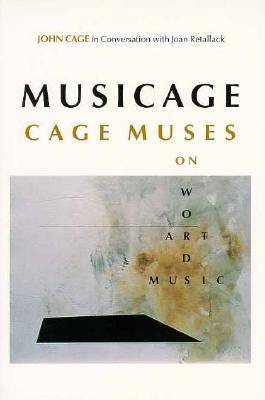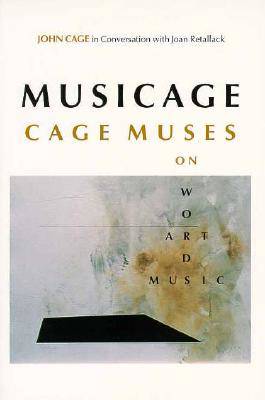
- Afhalen na 1 uur in een winkel met voorraad
- Gratis thuislevering in België vanaf € 30
- Ruim aanbod met 7 miljoen producten
- Afhalen na 1 uur in een winkel met voorraad
- Gratis thuislevering in België vanaf € 30
- Ruim aanbod met 7 miljoen producten
Omschrijving
The entire range of John Cage's work and thought, explored in three wide-ranging dialogues, which constitute his last unified statement on his art.
"I was obliged to find a radical way to work -- to get at the real, at the root of the matter," John Cage says in this trio of dialogues, completed just days before his death. His quest for the root of the matter led him beyond the bounds of the conventional in all his musical, written, and visual pieces. The resulting expansion of the definition of art -- with its concomitant emphasis on innovation and invention--earned him a reputation as one of America's most influential contemporary artists.
Joan Retallack's conversations with Cage represent the first consideration of his artistic production in its entirety, across genres. Informed by the perspective of age, Cage's comments range freely from his theories of chance and indeterminate composition to his long-time collaboration with Merce Cunningham to the aesthetics of his multimedia works. A composer for whom the whole world -- with its brimming silences and anarchic harmonies -- was a source of music, Cage once claimed, "There is no noise, only sounds." As these interviews attest, that penchant for testing traditions reached far beyond his music. His lifelong project, Retallack writes in her comprehensive introduction, was "dislodging cultural authoritarianism and gridlock by inviting surprising conjunctions within carefully delimited frameworks and processes." Consummate performer to the end, Cage delivers here just such a conjunction -- a tour de force that provides new insights into the man and a clearer view of the status of art in the 20th century.
Specificaties
Betrokkenen
- Auteur(s):
- Uitgeverij:
Inhoud
- Aantal bladzijden:
- 408
- Taal:
- Engels
Eigenschappen
- Productcode (EAN):
- 9780819563118
- Verschijningsdatum:
- 19/01/1996
- Uitvoering:
- Paperback
- Formaat:
- Trade paperback (VS)
- Afmetingen:
- 153 mm x 229 mm
- Gewicht:
- 653 g

Alleen bij Standaard Boekhandel
Beoordelingen
We publiceren alleen reviews die voldoen aan de voorwaarden voor reviews. Bekijk onze voorwaarden voor reviews.











